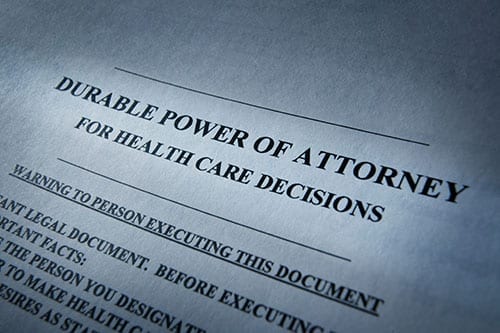What You Should Know About Living Wills and Health Care Power of Attorney
American life expectancy has increased over the years, and today 10,000 people will reach retirement age. As we grow older, sometimes our health reaches a point where we may not be able to care for ourselves. If this happens, do you know who will be making decisions about your care, and if they are up to or want the task? It could be a relative you haven’t been close to, or doctors, or even the courts.
To plan for the possibility that you may be unable to care for yourself and to maintain control of your care, you use two documents, what is commonly called a living will, and a health care power of attorney. In some states these two documents are combined into one and called an “advanced directive.”
The Living Will
The living will is nothing like a regular will or last will and testament, or even a living trust. It is created solely for the purpose of specifying your wishes for your healthcare in the event you’re unable to care for yourself. You can specify where and how you’ll be cared for depending upon your health issues, and you can even specify what care you do not want to receive.
The Health Care Power of Attorney
You’ll also want what’s called a durable power of attorney that appoints someone you trust to manage your health care according to the wishes in your living will. This person will take over your care, make decisions according to your wishes, and consult with doctors and health care providers. Most states require that you be at least 18 years of age to create a health care power of attorney.
Health Care Documents Activation
When these documents take effect is when a doctor determines that you are unable to care for yourself or lack the capacity to make decisions about your healthcare. Considerations include:
- You cannot understand the decisions you must make about your healthcare or their consequences.
- You’re unable in any way to communicate what you want. You can’t speak, write, or even indicate with gestures (such as yes or no with head or hand movements) what you want or do not want.
As an example: you’re in an automobile accident and you’re in a coma. You can’t answer questions, nor can you indicate your wishes with any movements, even eye movements. Your healthcare documents will go into effect immediately. If, on the other hand, there is some doubt as to whether you understand what’s happening for decisions, a doctor would be called upon to determine if you’re capable or your documents should take effect.
When Healthcare Documents End or are Revoked
In almost all cases, the only way these documents are revoked is through your decision to revoke them. You simply do so in writing and let your designated individual know. In rare cases, normally only if your documents are disputed, the courts can become involved.
Another situation could involve a divorce if your spouse is your agent named for healthcare decisions. If you do not have an alternate person named in the documents, in many states the document would be automatically revoked. The best approach in a divorce situation is to execute a new set of documents.
Not having these documents may never be a problem, but as with many things, it’s better to have them and not need them than the other way around.

